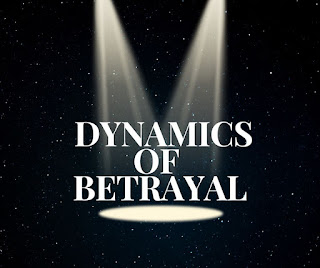“Be Angry but do not Sin”
Everyone has felt the need to forgive someone at some point in our lives.
Some of us have even had to forgive someone for a serious injustice they committed against us. When we did forgive, it is very common for us not to perceive exactly how angry we were.
Why do you think it is hard to admit that we are angry?
In Matthew's Gospel Jesus says, "But I say to you that every one who is angry with his brother shall be liable to judgment" (Matthew 5:22a). Does this mean that it is sinful to ever be angry?
Clearly someone might mistake Jesus' words about controlling our anger, to mean that we are not allowed to feel the emotion of ‘anger’ or hold the mistaken belief that the emotion of anger is always sinful. This is not the case.
If someone believes that all anger is a sin, they might be unwilling to admit they are angry.
The Catechism notes that anger is simply one of the passions or emotions which “are morally good when they contribute to a good action, evil in the opposite case” (CCC 1768). As Scripture puts it, “Be angry but do not sin” (Ephesians 4:26). We can rightly be angry at sin or injustice, but in relation to persons we must be justified in our anger and we must act in love.
"We may feel an initial surge of anger at someone, but then feed it by brooding over it, and ruminating over all the other things that person has done to offend us in the past. To the extent that we willfully sustain and arose an emotional response, we are praiseworthy for it if it is good, or blameworthy if it is bad." [Introducing Moral Theology: True Happiness and the Virtues. (Grand Rapids: Brazos Press, 2008), p. 84] Clearly the antidote to these feelings is forgiveness.
Why do you think it is hard to admit that we are angry?
In Matthew's Gospel Jesus says, "But I say to you that every one who is angry with his brother shall be liable to judgment" (Matthew 5:22a). Does this mean that it is sinful to ever be angry?
Clearly someone might mistake Jesus' words about controlling our anger, to mean that we are not allowed to feel the emotion of ‘anger’ or hold the mistaken belief that the emotion of anger is always sinful. This is not the case.
If someone believes that all anger is a sin, they might be unwilling to admit they are angry.
The Catechism notes that anger is simply one of the passions or emotions which “are morally good when they contribute to a good action, evil in the opposite case” (CCC 1768). As Scripture puts it, “Be angry but do not sin” (Ephesians 4:26). We can rightly be angry at sin or injustice, but in relation to persons we must be justified in our anger and we must act in love.
Our anger at a person for a serious injustice committed against us may well be justified, but our response to that person must still be in love. As St. Paul notes, “Be angry but do not sin” (Ephesians 4:26). Clearly we are not guilty of a sin simply because we experience the emotion of anger,
Our emotional responses can be praised or blamed only to the extent that they relate to our reason and will. Raw emotion, or spontaneous anger in response to some stimuli is likely not blameworthy, but if we chose to cultivate such a desire so that it becomes on ongoing feeling even if we do not act upon it, can become blameworthy. It is well to note, our anger may not be spontaneous if we deliberately place ourselves in a situation where anger is predictably aroused or if we deliberately form a set of beliefs which make our perception blameworthy.
In regard to anger, Professor William Mattison notes,
Our emotional responses can be praised or blamed only to the extent that they relate to our reason and will. Raw emotion, or spontaneous anger in response to some stimuli is likely not blameworthy, but if we chose to cultivate such a desire so that it becomes on ongoing feeling even if we do not act upon it, can become blameworthy. It is well to note, our anger may not be spontaneous if we deliberately place ourselves in a situation where anger is predictably aroused or if we deliberately form a set of beliefs which make our perception blameworthy.
In regard to anger, Professor William Mattison notes,
"We may feel an initial surge of anger at someone, but then feed it by brooding over it, and ruminating over all the other things that person has done to offend us in the past. To the extent that we willfully sustain and arose an emotional response, we are praiseworthy for it if it is good, or blameworthy if it is bad." [Introducing Moral Theology: True Happiness and the Virtues. (Grand Rapids: Brazos Press, 2008), p. 84] Clearly the antidote to these feelings is forgiveness.
Yet I want to emphasize once again, the basic emotion of anger is not necessarily sinful.
It might be helpful here to distinguish between anger and resentment. Anger is a natural and understandable response to an injustice or injury that we have experienced. Resentment describes a second step in which we re-feel or re-experience the original anger. Enright notes that anger is like a flame, while resentment is like a hot coal.
We might think of the analogy of a forest fire. Campers must be warned to carefully extinguish the smoldering coals of their campfires. You need to stir the coals and douse them in water so that they won’t again accidentally flare up into a fire and spread. The forgiveness process deliberately stirs up the coals of resentment in order to finally extinguish them. Without an intervention, resentments can smolder for a lifetime and even outlive the original offender.
What if you are not sure how you are feeling? What if you say, “But I’m not angry.” Even after looking within themselves, many people who are in emotional pain have a hard time identifying that pain as anger. We may also be angry but not be able to clearly identify the source of these feelings. We many clearly identify our anger with one person but only later see our anger at another. Somehow the black cloud of long standing resentment prevents us from seeing our feelings clearly.
It might be helpful here to distinguish between anger and resentment. Anger is a natural and understandable response to an injustice or injury that we have experienced. Resentment describes a second step in which we re-feel or re-experience the original anger. Enright notes that anger is like a flame, while resentment is like a hot coal.
We might think of the analogy of a forest fire. Campers must be warned to carefully extinguish the smoldering coals of their campfires. You need to stir the coals and douse them in water so that they won’t again accidentally flare up into a fire and spread. The forgiveness process deliberately stirs up the coals of resentment in order to finally extinguish them. Without an intervention, resentments can smolder for a lifetime and even outlive the original offender.
What if you are not sure how you are feeling? What if you say, “But I’m not angry.” Even after looking within themselves, many people who are in emotional pain have a hard time identifying that pain as anger. We may also be angry but not be able to clearly identify the source of these feelings. We many clearly identify our anger with one person but only later see our anger at another. Somehow the black cloud of long standing resentment prevents us from seeing our feelings clearly.
Another aspect of understanding anger relates to our emotional awareness. Psychologists often view anger as a basic unreflected emotion. When someone says they are angry, they could mean a wide range of feelings.
They might only be a tiny bit annoyed, or they may be so angry that they are ready to walk out the door and not come back. In order to understand ourselves, and to be better understood by others, we need to reflect on our emotions and become more aware of our true feelings. Upon deeper reflection we may be able to distinguish between, annoyed, miffed, a little put out, seething, raging. We also need t see how these feelings have lead us into resentment and holding grudges.
The process of forgiveness requires us to identify and embrace these emotions so that we can deal with them.
They might only be a tiny bit annoyed, or they may be so angry that they are ready to walk out the door and not come back. In order to understand ourselves, and to be better understood by others, we need to reflect on our emotions and become more aware of our true feelings. Upon deeper reflection we may be able to distinguish between, annoyed, miffed, a little put out, seething, raging. We also need t see how these feelings have lead us into resentment and holding grudges.
The process of forgiveness requires us to identify and embrace these emotions so that we can deal with them.




I turn to this prayer....Lord Jesus, I will what You will. I want to will it with all my heart. Hear me and heal me, help me to let go of the hurt ______ done to me. Let me leave them in Your arms and in Your Heart. In Your time, in Your wise and perfect ways, make them understand what they have done and give them the grace of repentance, change and conversion. Help me to be strong now, to go forward in my life as Your friend, Your faithful disciple. Free me from bitterness and be with me in my solitude. Fill the empty place in my heart and my days with Your divine love. Amen.
ReplyDelete